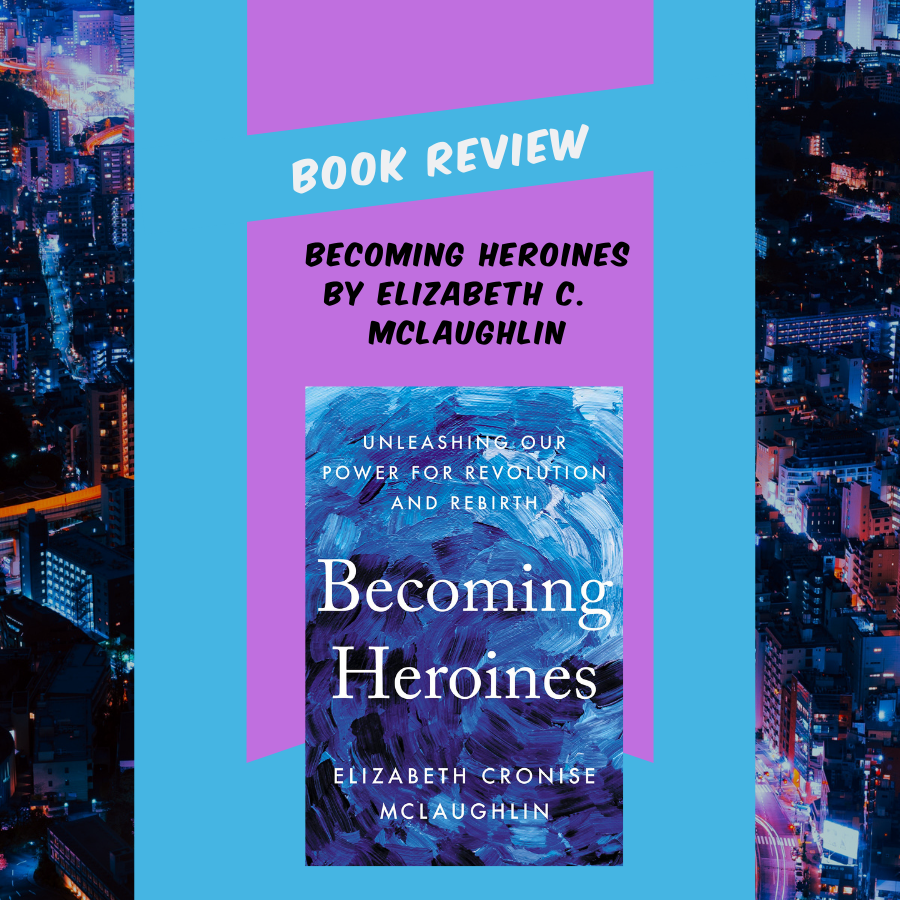Becoming Heroines: Unleashing Our Power for Revolution and Rebirth, by Elizabeth Cronise McLaughlin, is a non-fiction book that focuses on ways to becoming the heroine in your own life. A former Wall Street trial lawyer and serial entrepreneur, McLaughlin is an author, activist, and founder of the founder of The Gaia Project for Women’s Leadership. Although aimed largely at a white female audience, the book provides actionable items, practical exercises, and a road map to not only become the heroine in your own life but also become an all of various marginalized groups. Despite the term ‘heroine,’ McLaughlin’s book can also be read and used by men, or anyone else who wants to transform their lives, overcome their personal trauma, and make concrete change in their respective families, communities, workplaces, and societies, while creating a world that protects and ensures freedom for all.
The book is divided into four sections:
1. Recognition– recognizing and unpacking the structures of oppression that women are involved in their daily lives.
2. Reconciliation– finding and analyzing our internal biases and ensuring that we don’t use or biases to perpetuate further oppression.
3. Revolution– listening, advocating, and overthrowing systems that prevent women and other marginalized groups from progress.
4. Rebirth– building a future that provides freedom for everyone.
McLaughlin states that the terms “woman” or “women” intend to “include all those who resonate with femme energy, regardless of gender identity, and to be inclusive to the greatest degree possible.” McLaughlin is perceptive to the patriarchal systems and calls out how white women can break the systems by starting small and how they can be allies by doing the hard work and educating themselves. She also brings in her experiences as a lawyer, her work on diversity for corporations, and her activism. Moreover, she includes her failures and concrete examples of what to do when opportunities for overthrowing oppressive systems (systemic, institutional, interpersonal, and internalized oppression)or building an inclusive future come up. She provides ways on how women can collaborate as a possibility of women’s leadership, rather than being a leader who acts as gatekeeper.
This book was an interesting read, especially on how to become an ally and work towards a future that is equitable and equally collaborative. McLaughlin mentions how important it is for us to recognize our gifts as tools of change, look through an intersectional lens that benefits everyone, leverage our privilege, and be comfortable in discomfort. This is a book worth reading, even if you are not a white person as some of the exercises can be done by everyone.
You cna find McLaughlin on Twitter, Instagram, and LinkedIn.


